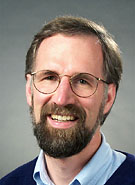Historian William Cronon to give Otis Lecture
William Cronon, a leading scholar on the human relationship with land and nature, visits Bates College to give the ninth annual Otis Lecture at 7:30 p.m. Thursday, Nov. 10, in Chase Hall Lounge, 56 Campus Ave.
Cronon’s talk is titled “Saving Nature in Time: The Past and Future of Environmentalism.” Made possible through the Philip J. Otis Endowment, the lecture is open to the public at no cost.
Cronon is noted for his work on environmental history, the writing and rhetoric of history and geography, and U.S. social and economic history, with a focus on the American West and frontier. His Otis Lecture is based on a forthcoming book of the same title.
Cronon is the Frederick Jackson Turner and Vilas Research Professor of History, Geography and Environmental Studies at the University of Wisconsin-Madison. He is the author of such works as Nature’s Metropolis: Chicago and the Great West (W.W. Norton, 1991), one of three nominees for the Pulitzer Prize in history; Uncommon Ground: Rethinking the Human Place in Nature (W.W. Norton, 1995) and Changes in the Land: Indians, Colonists, and the Ecology of New England (Hill and Wang, 1983), which examines the relationship between humans and the land in New England.
Cronon received a D.Phil. degree at Oxford University in 1981 and a Ph.D. from Yale University in 1990. He has been a Rhodes Scholar, Guggenheim Fellow and MacArthur Foundation Fellow, and has won distinguished teaching awards from Yale and the University of Wisconsin-Madison.
The annual Otis Lecture at Bates is funded by the Philip J. Otis Endowment, established in 1996 by a gift from Margaret V.B. and C. Angus Wurtele in memory of their son, Philip, a member of the class of 1995 who died attempting to rescue an injured climber on Mount Rainier.
In recognition of Otis’ appreciation for nature, the endowment helps support Bates programs with an environmental focus, in particular those exploring the spiritual and moral dimensions of humanity’s relationship with the environment.



